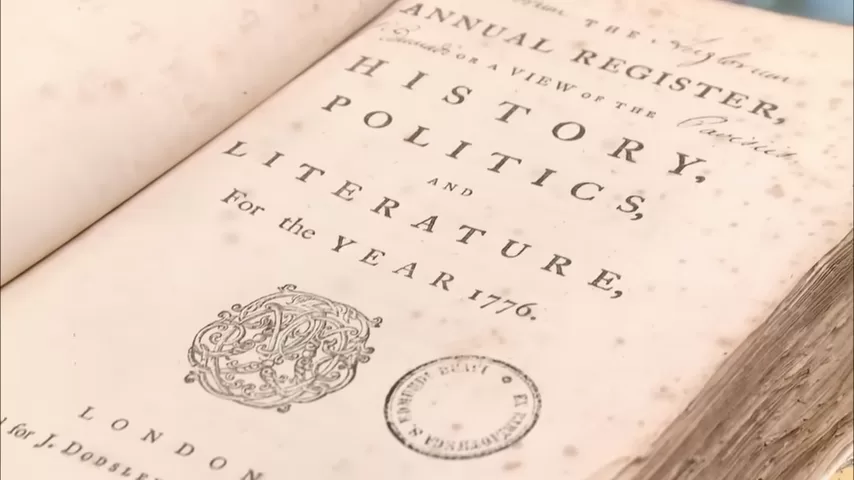It’s not every day someone walks into a pawn shop holding a document printed during the American Revolution — let alone one that contains both the Declaration of Independence and the Articles of Confederation.
But that’s exactly what happened when one young man showed up with a rare 1776 Annual Register, printed in London and edited by none other than Edmund Burke, a British statesman known for… supporting the American colonies.
“I want to sell it,” he said. “And take my lady out in Vegas. Get her drunk — maybe she’ll marry me.”
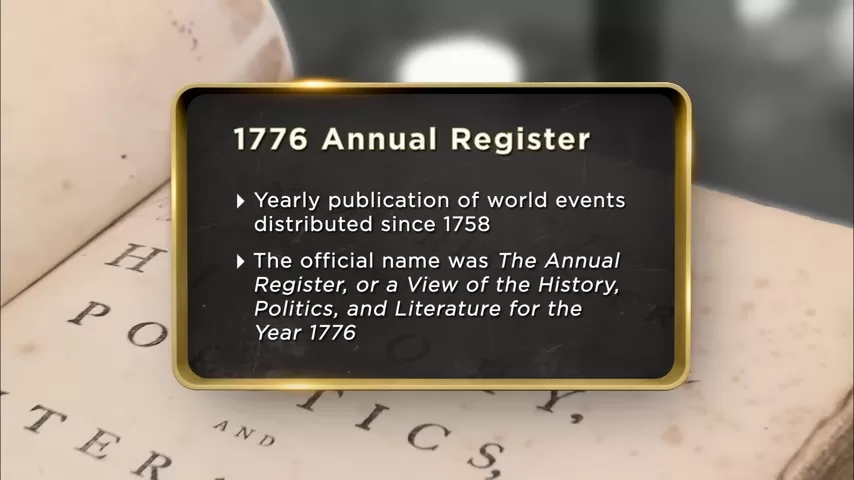
Priorities, clearly, were as interesting as the artifact itself.
What Is the Annual Register?
In the 18th century, long before breaking news alerts and digital timelines, people got their yearly global updates in thick bound volumes called Annual Registers. Think of it as the Wikipedia of the 1770s — but printed on coarse paper, in small type, and packed with political speeches, military updates, and government proceedings.
Published in 1777, this particular volume contained a detailed chronicle of events from 1776, arguably one of the most pivotal years in world history. Inside its worn pages? Descriptions of Washington’s losses, colonial skirmishes, and most importantly, the full text of the Declaration of Independence — reprinted for curious British eyes.
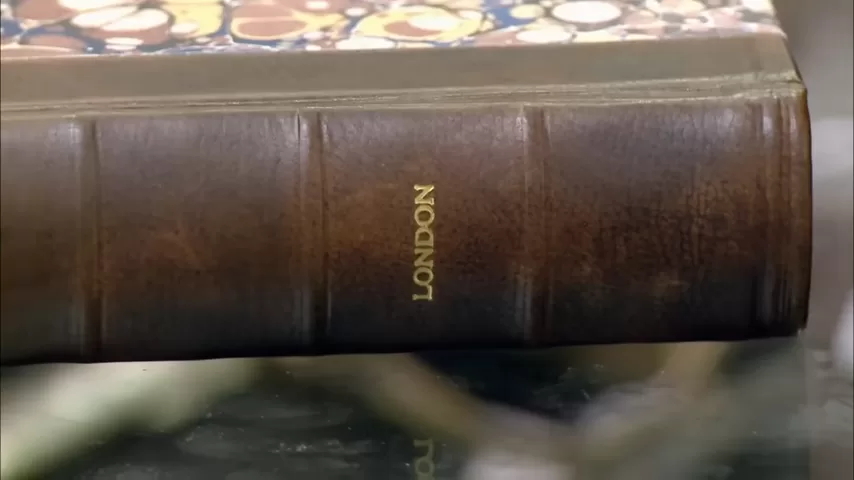
“Imagine Englishmen reading this and trying to make sense of these ragtag colonists who had the gall to fight the most powerful empire on Earth.”
It was historic news, wrapped in British commentary.
A Book With Battle Scars
The seller mentioned it had belonged to his grandfather, and to preserve it, they had it rebound. That’s where things got tricky.
“Generally, you don’t restore old books,” the shop owner explained. “Unless it’s absolutely necessary.”
In this case, pages were falling out, so the rebinding made it usable again — but not ideal for collectors, who value originality above all else. Worse still? A tape repair was discovered inside.
Yes, literal tape. On an 18th-century book.
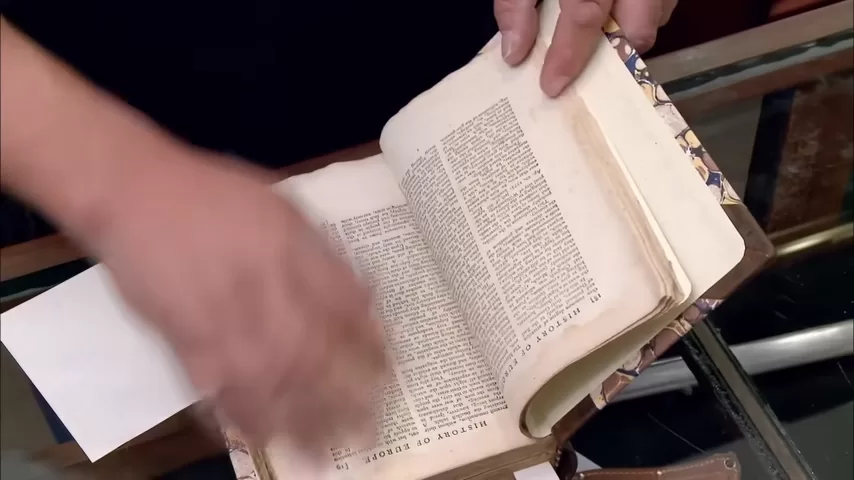
That alone could’ve cost him dearly — but he got lucky.
Enter the Expert: Is It Still Valuable?
Rebecca, a respected book appraiser, was called in to evaluate the find. Her reaction was instant:
“This is actually a pretty important publication. It was edited by Edmund Burke, who famously supported the American colonists.”
She noted that the book included descriptions of the defeat of George Washington in New York, one of the lowest points of the war for the American side. It painted the colonists as overmatched and near collapse — offering a sobering British view of the conflict.
But despite the political slant, Rebecca confirmed that the volume contained landmark documents: the Declaration of Independence, the Articles of Confederation, and rare firsthand reporting of Revolutionary War battles.
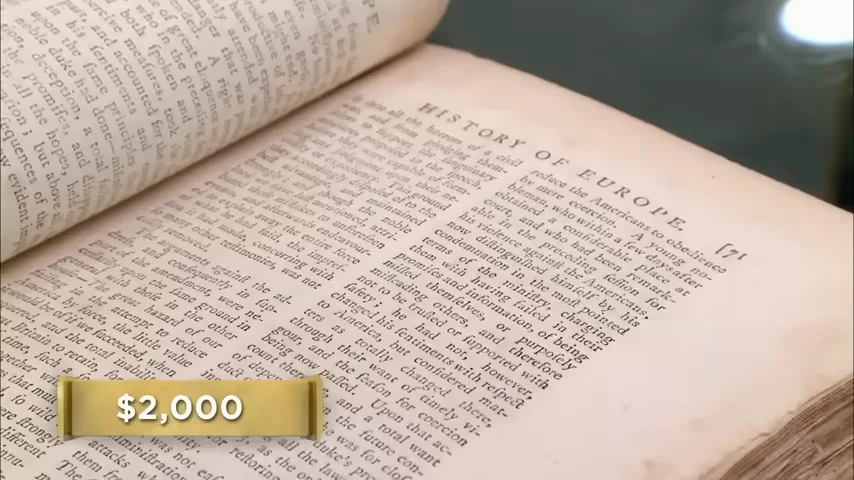
Her verdict? Even with the rebind and tape repair, it was worth $3,000.
Why the Value?
Collectors of Americana go wild for anything related to the birth of the United States. While a loose document or reprint might not excite every buyer, a bound British book with major political content — especially printed just one year after the events occurred — hits multiple niches:
- Revolutionary War enthusiasts
- Book collectors
- American history buffs
- Document autograph hunters (if associated names are included)
Plus, it was compiled by a historical figure (Edmund Burke), and published in a time when news crossed the Atlantic weeks or months later — adding to the aura.
“This book was the colonial version of CNN for the British public,” one expert joked.
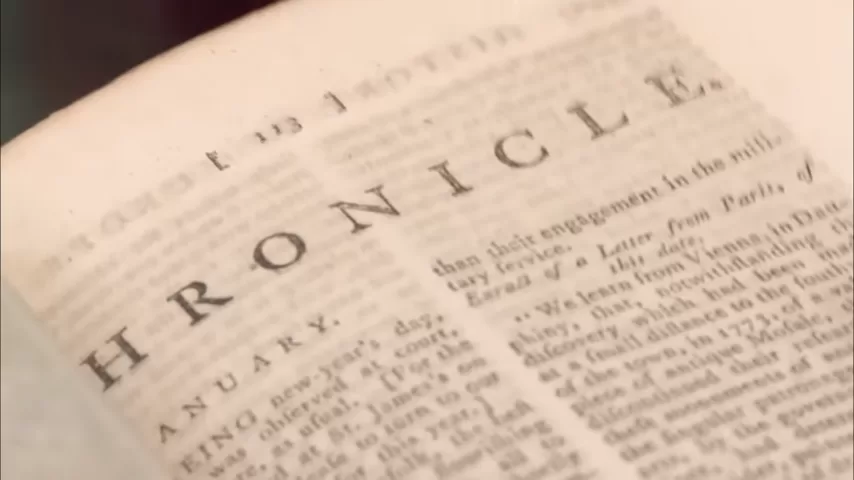
The Deal: Vegas Dreams vs. Historical Reality
The seller came in hoping for $2,000, and after the expert’s $3,000 valuation, he stood his ground.
“Let’s start at two grand,” he said, “and I will not be bartered with.”
Cue negotiation.
“Would you ever pull $3,000 out of your pocket for a book?” the shopkeeper challenged.
“For a first edition Nintendo Power? Yes.”
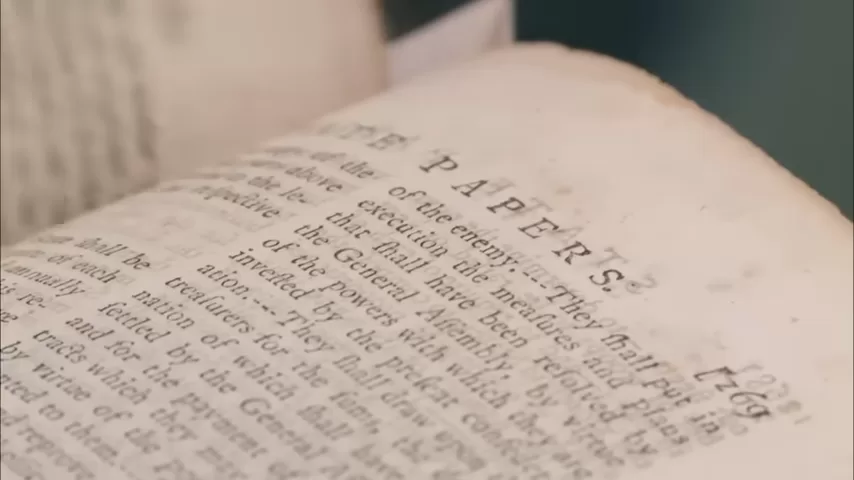
The two finally settled at $1,600 — a win for both sides.
“Honestly, I would’ve walked out with a thousand and been happy,” the seller admitted. “Don’t tell Rick that.”
Final Thoughts: Why This Book Still Matters
What makes this story so compelling isn’t just the cash value. It’s what the book represents: a time when the world held its breath, watching thirteen ragtag colonies challenge an empire. To the British, it was a rebellion. To the Americans, a revolution. To history, it was the beginning of a new nation.
This book didn’t just record that — it helped shape how the world understood it.
And while the seller might be more interested in weekend plans than preserving national heritage, he unwittingly carried a revolutionary relic into a pawn shop, where it found new life.
“Everyone loves Americana,” Rebecca said. And in this case? They paid for it, too.
